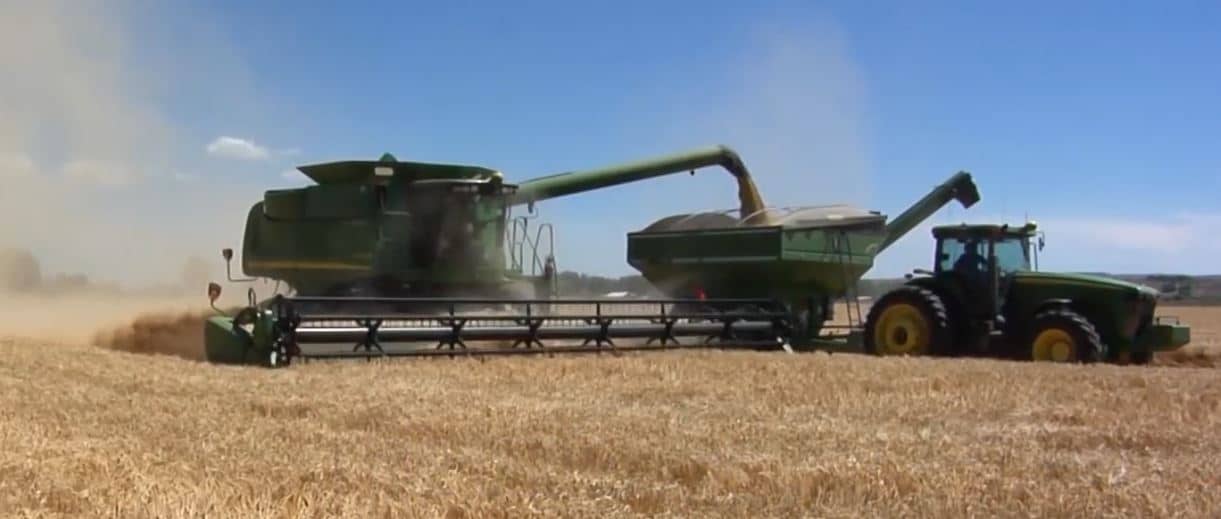The U.S. House Agriculture Committee had a hearing this week to examine farm safety net programs with testimony from farmers and commodity groups. Witnesses said that although commodity prices are much higher for many farmers, so are input costs, and the 2023 farm bill should better reflect that situation.
Through the tenure of the previous farm bill, producers have seen numerous disruptions to the market from trade wars to the pandemic to natural disasters. Those unexpected situations resulted in an unprecedented amount of money paid to agricultural producers through ad hoc programs. As work begins on the next farm bill, the House Ag Committee heard from nine witnesses representing almost all major crops grown in the U.S.
The rising cost of crop inputs, in particular fertilizer, was at the top of the list of concerns many growers presented to the committee. Witnesses outlined just how large the rise in fertilizer prices looms on agriculture’s horizon and how farm programs will need to reflect the impact of that reality.
National Corn Growers Association President and Iowa farmer Chris Edgington says safety nets implemented in the 2018 Farm Bill help protect farmers from volatility in the markets. “Today’s future and cash prices appear strong. However, there are no assurances that commodity prices will trend upwards or stay where they are at.”
Edgington said that continued price volatility along with continually rising input prices, mean farmers need to have flexibility in farm bill programs.
“Specifically, fertilizer prices have soared to record levels,” he said, “and several companies have unfortunately made a bad situation worse for growers by applying for tariffs to be applied to imports of phosphate and nitrogen fertilizers, respectively. NCGA and our state affiliates continue to focus on addressing high input costs, including direct requests that the companies voluntarily withdraw their tariff petitions.”
Nicole Berg, a Washington farmer and vice president of the National Association of Wheat Growers, told the committee wheat growers sustained “massive” financial losses from 2014 to 2018 and that farm programs have been “crucial” in keeping farmers in operation.
Berg noted how ARC and PLC don’t adequately cover the cost of production. Additionally, she acknowledged supply chain issues facing farmers, as well as the cost and availability of inputs that are negatively impacting wheat producers.
“It is important that Congress maintains a strong safety net for farmers given the farm economy’s cyclical nature,” said Berg. “Supply chain issues and availability of inputs continue to present challenges for farmers. These challenges include rising prices and availability for fuel, parts, vital equipment, and crop protection tools that allow farmers to continue using climate-smart ag practices like no-till.”
“The important thing to remember is that good times in the farming economy rarely last,” she said.
“Removing essential pieces of the farming safety net can have disastrous consequences when the economy inevitably takes a downturn. Therefore, the high prices brought on these last two years will not last forever, and it is important that Congress maintain a strong safety net in place given the cyclical nature of the farm economy.”
Bismarck, ND farmer Clark Coleman spoke on behalf of the National Barley Growers Association, USA Dry Pea and Lentil Council, Northern Canola Growers Association and National Sunflower Association. Coleman said that the Title One programs are the backbone in ensuring stability in farming operations. “Without programs, it would be difficult to get financing for my seed, fertilizer, and other production input costs. The options and flexibility provided by the 2022 farm bill has given farmers latitude to develop protection plans to best fit their operations.” Coleman said the Title One programs serve as a safety net, not a market driver.
Dr. Rob Johansson, Director of Economics and Policy Analysis at the American Sugar Alliance testified on the importance of supporting America’s sugar farmers, producers, and sugar supply chain by maintaining a strong U.S. sugar policy in the Farm Bill.
Johansson thanked lawmakers for their bipartisan support of U.S. sugar policy, which, because it is based on loans repaid with interest, is designed to cost taxpayers nothing.
Johansson also explained how farm and trade policies, and the strong enforcement measures put into place to uphold these policies, prevent our market from being flooded by heavily subsidized foreign sugar imported from the volatile world market. This sugar is normally sold well below the cost of production and is not produced under the same high standards as U.S.-made sugar.
“Our industry proudly meets some of the highest labor and environmental standards in the world, unlike many other large sugar producing countries. Moreover, using best practices and continuous improvement, our sector has made huge strides in sustainability,” Johansson said.
###
NAWG/DTN/ASA/NBGA/NCGA


